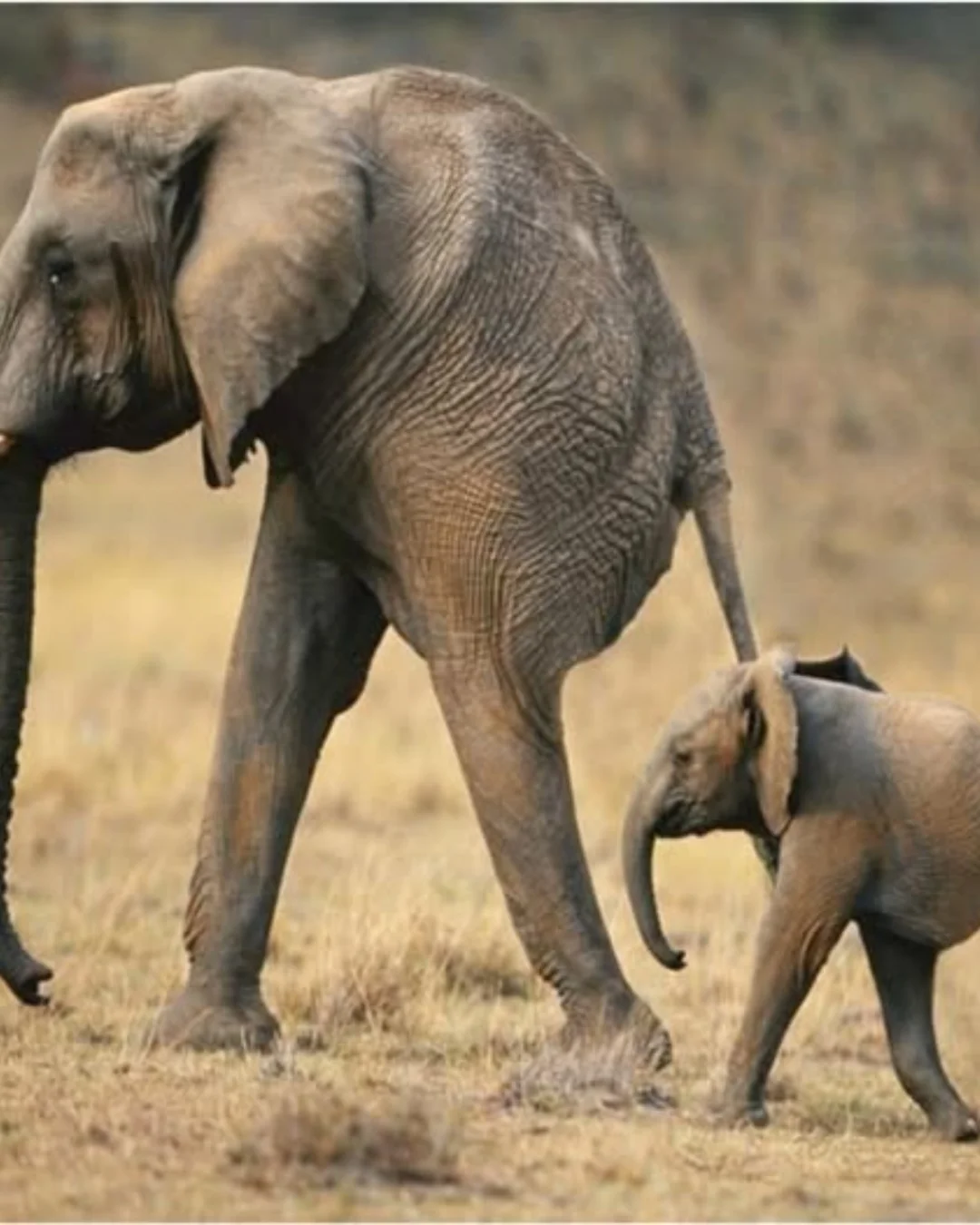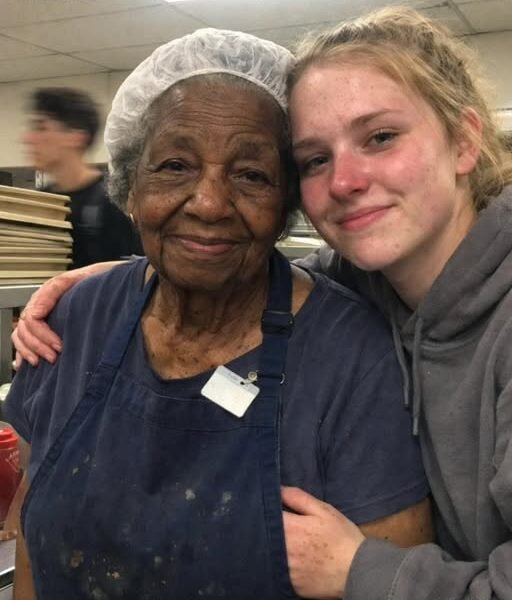In the heart of Africa’s savanna, where survival is a constant struggle, a miracle unfolded that defied the harsh laws of nature. It was a story that no one could have predicted, yet one that would be remembered as a testament to the strength of love, determination, and the incredible resilience of nature. The story of a two-legged elephant mother and her baby is a powerful reminder that the bonds of family and the will to survive can overcome even the most impossible odds.
The elephant, known to the local wildlife researchers as “Matriarch,” had suffered a devastating injury. A poacher’s trap had taken one of her legs, leaving her with only two to support her massive body. It seemed impossible for an elephant to survive, let alone care for her calf, with such a severe handicap. Her injury was both physical and emotional, and the odds stacked against her were overwhelming.
But Matriarch’s determination to live, not just for herself but for her baby, was stronger than anyone could have anticipated. Against all expectations, she found a way to adapt to her new reality. Her remaining two legs, though weakened, still carried her forward, step by painful step. She learned to balance herself in a way that seemed almost impossible for an animal of her size, using the strength of her other limbs and the sheer force of will that kept her moving.
Her calf, born just a few months before the injury, was a curious and energetic young elephant. Though still learning the ways of the world, the bond between mother and child was already strong. The calf, despite the struggles, followed closely behind Matriarch, learning how to navigate the savanna in the footsteps of a mother who had become a symbol of strength and survival.

As they moved through the wild, Matriarch’s two-legged gait was slow, but her focus was unwavering. Every day was a battle—finding food, water, and shelter was difficult for a two-legged elephant. But what truly set Matriarch apart was her determination. She refused to give up on herself or her baby. With each step, she proved that even in the face of extreme adversity, the power of a mother’s love could push her beyond her limits.
The young calf, with the protection of his mother, grew stronger each day. The pair became an incredible sight, a living symbol of resilience in the harshest of environments. While other animals of the savanna struggled to survive in their own ways, Matriarch and her baby’s story became an inspiration to researchers, conservationists, and wildlife enthusiasts alike. They had defied every expectation.
It wasn’t just Matriarch’s will to survive that was remarkable; it was the love she showed her calf. Every moment of their journey was filled with tenderness and care. She was patient with him, teaching him how to forage for food, how to find water, and how to protect himself from predators. She guided him with the strength of a mother who had already sacrificed so much, and yet she gave everything she had to ensure her baby’s safety and well-being.
Their bond was unbreakable, and the calf, though young, sensed the depths of his mother’s sacrifice and strength. It wasn’t long before he began to step in and help his mother, offering his own support in ways that other elephants would not have needed. He would bring her food, nudge her when she seemed tired, and stand close to her, a silent promise that he, too, was determined to survive and thrive with her.
As the seasons passed, their journey took them through many challenges. The harsh African droughts tested their ability to find water, and predators lurked in the tall grass, waiting for an opportunity to strike. But no matter how tough the circumstances, Matriarch and her baby continued to push forward. There were moments of doubt, moments when it seemed like the odds were simply too great, but the love between them was their shield.
Through it all, the two-legged elephant mother’s story spread far beyond the savanna. Researchers and conservationists documented her every move, not just as an animal in need of protection, but as a living example of perseverance. Her story began to spark debates about the strength of the elephant species, and Matriarch’s courage became a symbol of hope for conservation efforts worldwide. The impossible seemed to become possible through her efforts, and that hope spread throughout the conservation community like wildfire.
In time, Matriarch’s baby grew strong enough to survive on his own. He learned the ways of the savanna, grew into a mighty young bull, and became the living legacy of his mother’s extraordinary determination. Yet, as he ventured off to find his own place in the world, he always carried with him the lessons that Matriarch had taught him: the importance of love, family, and the unyielding will to survive, no matter the obstacles.
As for Matriarch, she continued to live on, though her journey was a difficult one. Her body, weakened by time and injury, required constant care and vigilance. But her spirit remained unbroken. Every step she took was a victory in itself, a reminder that love and determination could overcome even the harshest of odds.
Matriarch and her baby defied the laws of nature. They proved that, no matter how impossible a situation may seem, survival is not just about physical strength—it is about the strength of the heart. They became a beacon of hope, showing that love, even in the most dire of circumstances, can triumph over everything.
Their story lives on in the hearts of those who hear it. The legacy of a mother and her child, who fought for each other in the face of impossible odds, serves as a powerful reminder of the strength that lies within us all—the strength of love, the strength of resilience, and the strength of determination.


